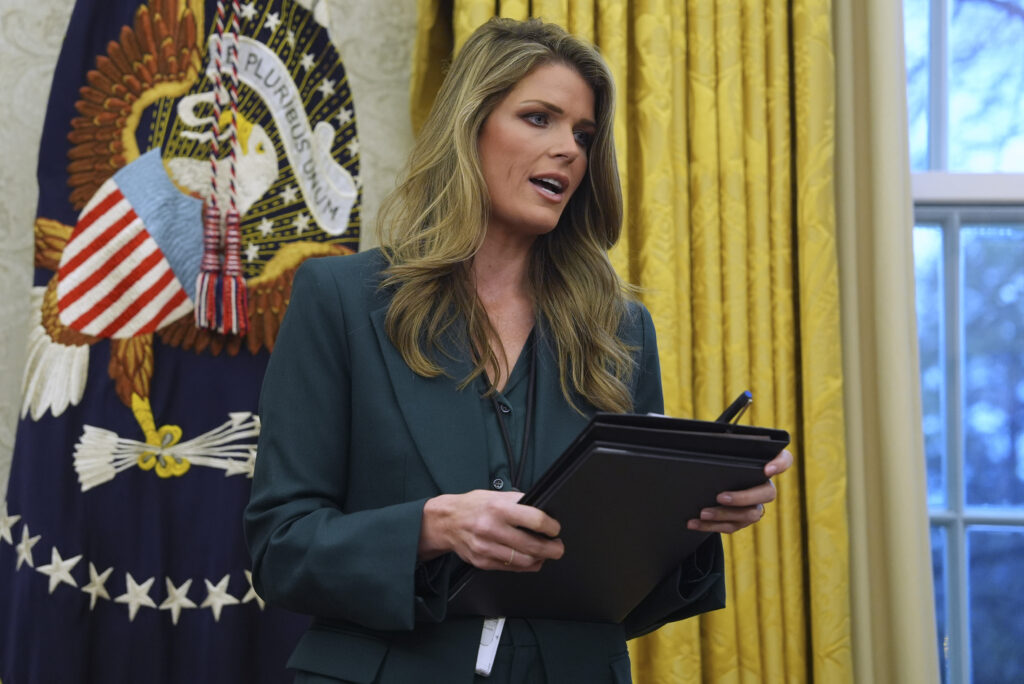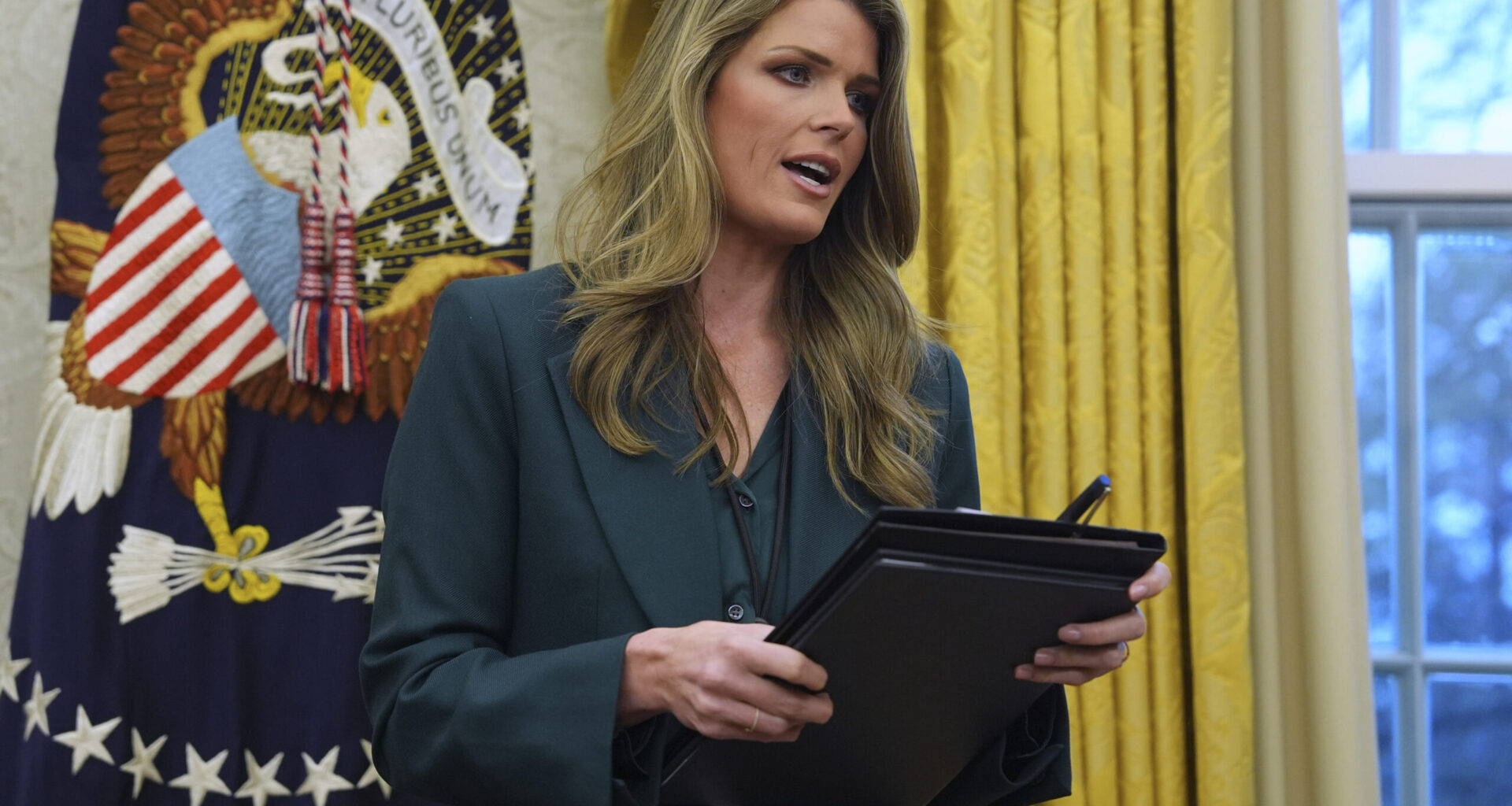 Lindsey Halligan speaks as President Donald Trump signs executive orders in the Oval Office of the White House in January 2025. (AP Photo/Evan Vucci)
Lindsey Halligan speaks as President Donald Trump signs executive orders in the Oval Office of the White House in January 2025. (AP Photo/Evan Vucci)
New York Attorney General Letitia James (D) escalated her defense against what she calls a politically driven prosecution, signaling plans to challenge both the conduct and the legitimacy of the federal prosecutor leading the case against her.
In a motion filed Thursday, James’ legal team accused interim U.S. Attorney Lindsey Halligan — Trump’s recent appointee — of violating multiple ethics and secrecy rules through private communications with a journalist, Lawfare’s Anna Bower, about the ongoing criminal case.
The filing portrays Halligan’s actions not only as improper but as evidence that her appointment itself may have been irregular or politically tainted.
“As reported and as confirmed by the Signal messages exchanged between Ms. Halligan and Ms. Bower, it was Ms. Halligan who initiated contact with the journalist — an unusual and improper occurrence,” the motion reads. “The exchange was a stunning disclosure of internal government information.”
According to the filing, Halligan used the encrypted messaging app Signal to contact Bower just two days after indicting James on two counts of bank fraud and false statements. The motion includes screenshots of Halligan berating Bower over her reporting.
“Anna, You’re biased. Your reporting isn’t accurate,” Halligan wrote. “I’m the one handling the case and I’m telling you that,” she continued. “If you want to twist and torture the facts to fit your narrative, there’s nothing I can do.”
The exchange, James’ lawyers argue, represents unprofessional and unlawful conduct by a sitting U.S. Attorney commenting on evidence, witness credibility and grand-jury materials outside of court.
“Ms. Halligan — the lead prosecutor on this case as of the date of this filing — commented on the credibility and general strength of the evidence presented to the grand jury,” the motion adds. “These extrajudicial statements and prejudicial disclosures by any prosecutor, let alone one purporting to be the U.S. Attorney, run afoul of and violate the Federal Rules of Criminal Procedure, the Code of Federal Regulations, this Court’s Local Rules, various rules of ethical and professional responsibility, and DOJ’s Justice Manual.”
Halligan’s messages, sent using Signal’s auto-delete feature, may also have violated federal records-retention laws.
James also suggests a broader challenge to the legitimacy of Halligan’s leadership. The motion repeatedly emphasizes her “purported” status as U.S. Attorney — language that suggests the defense may soon contest whether Halligan was properly appointed under the Vacancies Reform Act or other federal statutes.
“Ms. Halligan has no prosecutorial experience whatsoever. But all federal prosecutors are required to know and follow the rules governing their conduct from their first day on the job, and so any lack of experience cannot excuse their violation,” the motion argues. “While the oft-quoted phrase ‘the bell cannot be unrung’ is true for that which has already occurred, the Court can require the government to follow the law going forward by entering Attorney General James’s requested Order and preventing further disclosures of investigative and case materials, and of statements to the media and public, concerning this case and any parties or witnesses.”
Halligan’s rise to the post of interim U.S. Attorney came after months of political pressure from President Donald Trump, who repeatedly demanded investigations into his perceived adversaries. Among his top targets was James.
In social media posts, Trump accused James of “corruption” and urged Attorney General Pam Bondi to “take action” against her. Within weeks, the prior U.S. Attorney in the Eastern District of Virginia — who had reportedly declined to pursue charges — was replaced. Halligan, a former member of Trump’s personal legal team in the Mar-a-Lago documents case, was soon installed as his successor.

